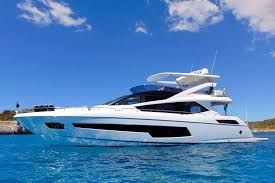This trend is not new. For decades, yachts have been associated with luxury, but in recent years, rentals have expanded to include a wider audience, from small sailing boats to larger vessels designed for extended travel. Today, yacht rentals are used for leisure travel, corporate events, family vacations, and even research or educational trips.
The growth of tourism in coastal destinations such as the Mediterranean, the Caribbean, and Southeast Asia has also encouraged the development of yacht rental options. As international travel has increased, more people are seeking unique ways to experience oceans and waterways, and yacht rentals have become one of the choices in this space.
Importance
Understanding yacht rentals is important for several reasons.
-
Tourism industry impact: Yacht rentals play a role in supporting local economies through port fees, fuel, maintenance, and tourism-related services.
-
Travel planning: For individuals planning a vacation, learning the basics of yacht rentals helps in making safe and informed decisions.
-
Safety and compliance: Maritime law, insurance, and safety requirements affect every yacht rental, making it essential for travelers to be aware of these elements.
-
Environmental considerations: Yachting is also linked to discussions about sustainability, as international organizations and local governments encourage eco-friendly travel.
For travelers, yacht rentals provide:
-
Flexibility in choosing routes and schedules
-
Privacy and comfort compared to large cruise ships
-
Opportunities for activities such as fishing, diving, or coastal exploration
-
Educational experiences about marine life and navigation
By learning the fundamentals, people can avoid misunderstandings, reduce risks, and enjoy a more organized travel experience.
Recent Updates
Yacht rentals continue to adapt to changes in tourism and technology.
-
Digital platforms (2024–2025): Online platforms have made it easier for travelers to explore rental options and compare yacht types, sizes, and availability. These platforms also include tools for navigation planning and safety tracking.
-
Sustainability focus (2024): In response to environmental concerns, new hybrid and electric-powered yachts have been introduced in regions such as the Mediterranean and Florida. This aligns with global initiatives to reduce carbon emissions in maritime travel.
-
Tourism recovery (2023–2024): Following the pandemic, yacht rentals became popular because they allow small-group travel with minimal exposure to large crowds. Coastal destinations such as Greece, Croatia, and Thailand reported increased yacht bookings during this period.
-
Insurance requirements (2024): Some countries strengthened travel insurance and maritime insurance requirements for yacht rentals, ensuring better safety and accountability for both travelers and providers.
These changes highlight how yacht rentals are evolving beyond luxury travel, becoming part of mainstream vacation planning and international tourism strategies.
Laws or Policies
Yacht rentals are influenced by various laws and policies, depending on the country or region.
-
Licensing requirements: In Europe, the Mediterranean countries often require specific skipper licenses or certifications for yacht handling. For example, Croatia requires an International Certificate of Competence (ICC).
-
Maritime law: International Maritime Organization (IMO) guidelines influence safety, crew training, and environmental standards.
-
Insurance regulations: Many countries mandate liability insurance for rented vessels to cover accidents, damages, or third-party claims.
-
Environmental policies: Governments in destinations such as Greece and Italy regulate anchoring in certain areas to protect marine ecosystems.
-
Tourism permits: Some regions require special permits for yachts to enter marine parks, coastal reserves, or international waters.
Travelers need to review these policies before renting a yacht, as non-compliance can lead to fines or restricted access.
Tools and Resources
Travelers can use a variety of resources to better understand yacht rentals:
-
Navigation and weather apps:
-
Navionics (marine charts and navigation)
-
Windy (real-time weather updates)
-
MarineTraffic (ship tracking and port information)
-
-
Travel and planning resources:
-
International Maritime Organization (IMO) website for regulations
-
YachtWorld and Boat International for yacht market trends
-
Local tourism websites for port rules and seasonal guidelines
-
-
Calculators and guides:
-
Fuel consumption calculators
-
Distance and route planning tools
-
Online checklists for safety equipment
-
These resources provide reliable information that helps travelers prepare responsibly, compare yacht types, and ensure compliance with international and local laws.
FAQs
What is the difference between yacht rentals and cruises?
Cruises operate on fixed routes and schedules with large groups of people, while yacht rentals offer private and flexible travel experiences tailored to smaller groups.
Do I need a license to rent a yacht?
In many regions, yes. Countries in the Mediterranean often require an International Certificate of Competence (ICC) or equivalent, while others allow rentals with professional crew included.
What safety measures are necessary when renting a yacht?
Basic safety equipment includes life jackets, emergency flares, first aid kits, and navigation tools. Travelers should also review maritime insurance requirements and ensure crew training certifications are valid.
Are yacht rentals environmentally friendly?
Traditional yachts may use significant fuel, but newer hybrid and electric-powered vessels are improving sustainability. Local governments also regulate anchoring to protect marine life.
Which destinations are most popular for yacht rentals?
Top destinations include Greece, Croatia, Italy, Spain, the Caribbean, and Thailand, with seasonal variations depending on climate and local tourism regulations.
Conclusion
Yacht rentals provide an alternative way to experience travel, offering flexibility, privacy, and unique access to coastal destinations. By learning the basics of yacht rentals, travelers gain a deeper understanding of maritime law, environmental considerations, and the importance of safety.
Recent developments show a shift toward sustainability and digitalization, making yacht rentals more accessible while maintaining compliance with regulations. With the right tools, knowledge, and preparation, travelers can make informed decisions that enhance their experience while respecting the rules and natural environments connected to maritime tourism.






